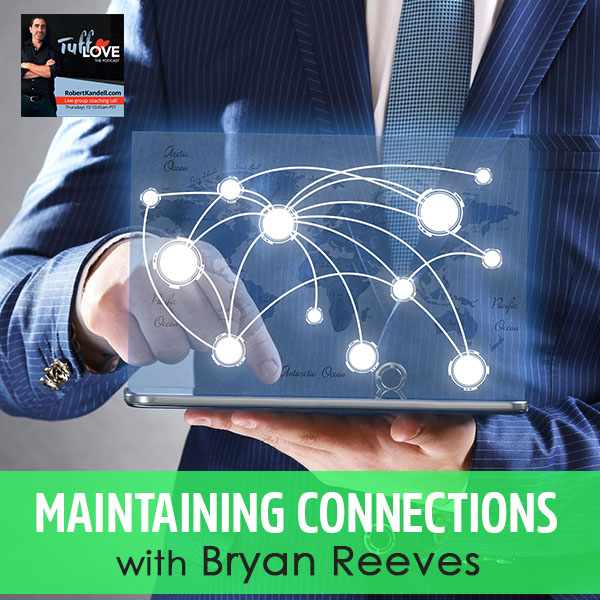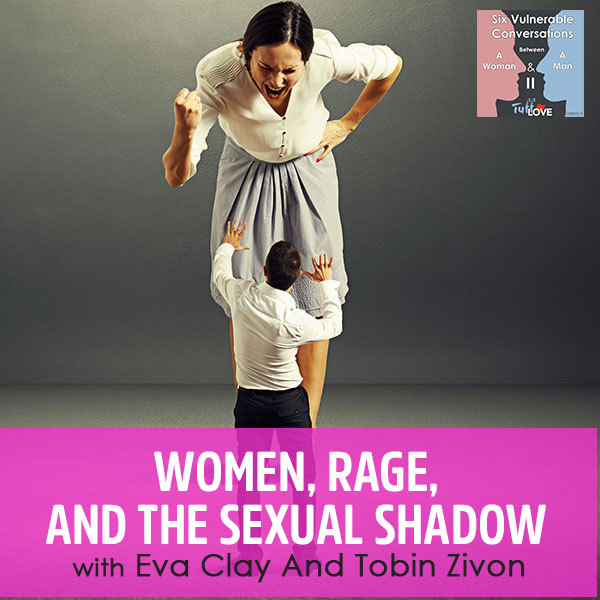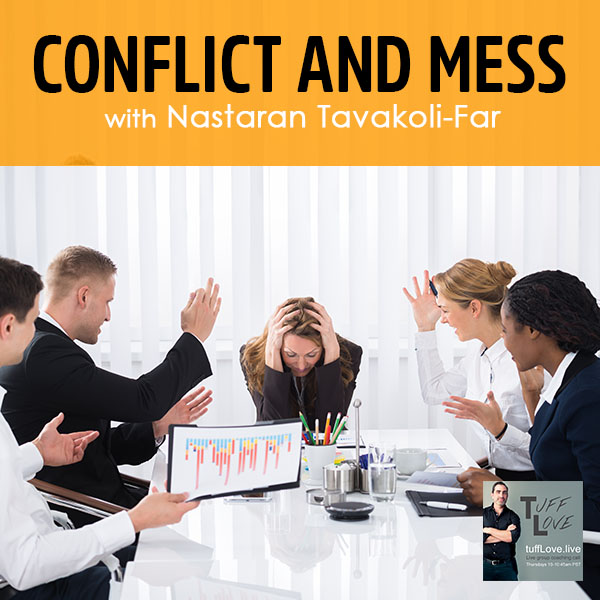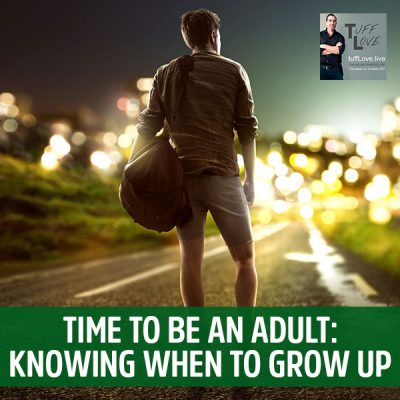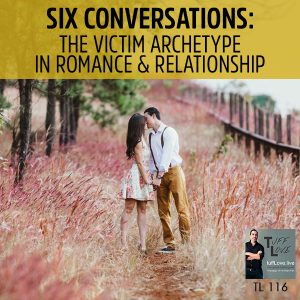
116: Six Conversations 2.1: The Victim Archetype in Romance & Relationship
Mar 2, 2018
There are many cultures across the world where the image of women is projected as the victim archetype. For them to find true love, they must wait for their prince charming riding out into the sunset. While this fantasy works for some, women of today still need to realize that they can come from a place where they are already happy and experiencing love. There is this place of owning the experience, taking charge and mastering the relationship and not be just a damsel in distress.
116: Six Conversations 2.1: The Victim Archetype in Romance & Relationship
I’m very happy to announce season two of Six Vulnerable Conversations Between Two Women. I’m not on this podcast, I am simply producing it. I’m excited to see my two friends, Arielle Brown and Jamie Thompson, and what happens in their conversations about six topics that are near and dear to their hearts. This show is called the Victim Archetype in Romance and Relationship. For more shows, my own show or more Six Conversations, please visit TuffLove.Live. If you love the show, please give us a rating on iTunes, Stitcher, or wherever you listen to your podcast. Thanks so much and enjoy the show.
Welcome to the first of Six Vulnerable Conversations Between Two Women. I have myself and Miss Jamie Thompson. I’m super excited because this project actually started about four months ago when myself and the infamous talented Robert Kandell decided we want to create a space where experts in this field of intimacy, connection, relationship, where teachers, where coaches, where facilitators, and we wanted to create a project where we could pull back the veil and just speak candidly, unscripted, raw, and real about our personal experience in this realm and how we got to the places that we are.
It was such a powerful six weeks of conversations that we decided we wanted to keep it going, switch it up, and create different dynamics between the two people that were involved in the conversation. The natural next step felt like having a conversation between two women and starting to dive into these conversations that are deeply relevant, deeply edgy in a lot of cases, and deeply important for us as women to be speaking about so we can be living the types of lives and creating the types of relationships that we desire. I want to give Jamie an opportunity to say hello.
Thanks, Arielle. I am so excited to be here. I have connected deeply with both Robert and Arielle. When she invited me to do this, it felt both thrilling and terrifying, an interesting, juicy edge to dive into. That excited me and I’m really looking forward to pulling back the kimono, as they say, to the sometimes messy process that even coaches, experts, and people who seem to have it all together actually go through to create the life that we truly desire.

Victim Archetype: We’re expecting this knight in shining armor to come and absolve us of all of our responsibility.
I feel so much resonance with you. From the very first conversation we had, I could feel that there was going to be some rich places that we would go together. For this episode, we’re going to be diving into the topic of The Victim Archetype in Romance and Relationship. This one feels like such a relevant piece to me, especially with everything that’s been happening in light of the MeToo Movement, with really looking at the way we as women can embody the victim archetype and how that impacts our ability to create truly fulfilling romantic and intimate relationships.We’re going to be diving into different aspects of what that means. What is the victim archetype? Where does it come from? How do we actually shift into a more empowered way of engaging in our relationships, so that desire and authenticity can be the leading mechanisms? Jamie, what personal relevance does this topic have for you as we engage in this conversation?
For me, one of the aspects that we’re talking about here is in finding the place where either we are too rigid and boundaried, or we collapse into what someone else wants without holding our own experience, desires, and boundaries. There’s a place in between that that’s like a sweet spot. In my experience, when I collapse or when I’m too rigid, many times I end up then projecting my own experience of this relationship isn’t working onto my partner instead of coming from the place of ownership. A perspective that I have found so valuable, is standing in ownership no matter what’s happening, and looking at how I can look from that perspective in like, “I’m not liking what’s going on. This isn’t what I want to be happening right now.” How can I shift and reorient myself such that I’m now enjoying my experience? I’m the master of my experience and I’m in charge of my experience. If I’m unhappy in a relationship, what if nobody else needs to change? Starting from there and looking at what can I do, and I’m not always successful in this. This is one of those paradoxical questions that’s a place to live from that can provide a lot of value and standing in a place of power with circumstances that are happening.
I definitely relate to a lot of what you’re saying, especially piece of when I’m wanting to make it about the other person, like wanting to make the relationship wrong. What I find is I start wanting to push the relationship away when I get to a place where I am unwilling to take ownership for how I have created this. What I love to do is dial this back in. We’re both coaches. We both work with people around intimacy, relationship, connection, and some sort. When you work with women, what is the common thread that you find? What is the biggest challenge that you find women have around being in their power in relationship?
The piece that you just said of looking at part of our cultural programming as women is that the man, or our knight in shining armor, in all the stuff that we watched growing up, that someone is going to save you, that implies someone is then responsible for you. I frequently see women come to my work with a lot of couples and individuals. Specifically, I see this also in couples where there’s this expectation of a man to be this fantasy and to show up as the knight in shining armor that we fantasized about as young girls, and even all the way into high school and college, and sometimes adults still. We’re expecting this knight in shining armor to come and absolve us of all of our responsibility.
It can be something where we get to come back to a place of appreciation for men, and approval and support for them to show up in their masculine power, without putting the expectation of them to then make us happy. It’s really coming from the place of already being happy and being in the experience of what it’s like to be loved and what it feels like to be supported. Living in that experience and then inviting that and calling the masculine forth from the feminine, instead of berating the masculine and trying to control it and trying to get what we want out of it, but rather sitting in a place of experiencing it happening already, like actually going internally in our body and finding the experience of support and love that we’re desiring already.
There is something that emerged for me. Specifically, I feel like it’s one, important for us as women to realize where the conditioning comes from. A lot of the reason that I myself have held on to playing out a victim in conscious or unconscious ways, is because I didn’t want to be wrong. I felt like if I was taking responsibility for it, it meant that I deserved being a victim, it was my fault that I was a victim, and there was shame around that. That’s a lot of the reason that we can attach to these roles that don’t actually serve us, because we have shame for the fact that they exist in the first place. One of the first steps is realizing that we as women have been conditioned to embody this archetype of the victim. You were talking about the prince charming from the age that we could actually watch TV.
I’m pretty sure everyone who watches this video has watched some type of Disney princess movie at some point. What are we taught? We’re taught in Disney movies that there’s a damsel, who gets herself into some type of situation that she cannot herself get herself out of. The prince’s task is to come and save her from her circumstances. Once he saves her from her circumstances, she gets on the back of his horse, rides off to his castle in the sunset, and that’s where the story ends. It’s so important for us to realize there are these things that exist in us that we didn’t consciously choose. It’s not our fault, but it is also our responsibility to create awareness around them so that we can choose a different story. I’m curious what your thoughts are on that.
What we did, what happened, what we’re programmed with our childhood, all of that, it’s not fault. There’s many times responsibility and fault get collapsed. We’re responsible for what we do now and from here forward. Sometimes that seems like it becomes collapsed with meaning, that everything up until now was our fault. It doesn’t mean that. We can actually take responsibility from this moment forward, and learn from the past experience. I also want to go back to the thing that you said. I love that you broke down the actual archetypical story of the Disney movie. It’s so interesting that as women, we were conditioned and trained to have all of our attention be on the man and what they’re going to do for us. Then men are conditioned to have all their attention be on getting the woman and bringing her into their ride, bringing her on their horse to their castle. There’s a rigidness to that even with gender dynamics.
Women and men both have masculine and feminine energy. It’s conditioned in this very rigid role where the man is only doing this and the woman is only doing this, where it’s actually a much more fluid than that. I’ve been really interested in my life in how I can consciously bring the masculine sometimes, and then consciously bring the feminine, and then direct and then soften, and developing a fluidity and choice between that, so that it’s not this conditioned, archetypical relationship that has been bestowed upon me. How can I consciously, at choice, have more choice around what energy I’m bringing? It made the hole of needing a man a little bit smaller. That is actually something that can be brought from within, and so the hole of that is smaller.
That brings up a very interesting conversation of it’s not so much about needing a man, but why do we want a man in our life? When we’re not carrying the underlying assumption of, “I need a man to keep me safe, I need a man to support me,” why do we actually desire men in our lives? I’ve definitely been facing this more and more as I become more successful in my work, more aware that I am creating my reality. As a result, consciously creating it, my life is getting richer and richer. I’m realizing I want men in my life to co-create with. I want men in my life to stir those energies together. If I’m feeling disempowered and I need a man, I can’t fully show up in my desire. That’s the place that I’m realizing. I’ll go a little into a personal story of my primary partner that I have right now.
One of the most challenging things about our relationship that has caused the most chaos has been my unwillingness to set personal boundaries and saying no. There’s been such a fear of setting a boundary because of the fear of losing love and have this person leave me, that I’ve been wanting this man to just be able to always intuit what my yes or what my no is, and make it so that I don’t have to do the work myself of standing in my power. It’s been this process of getting to this place where I’m realizing, for the types of relationship I want, I need to be willing to face that discomfort. I need to be willing to say the no and have the uncomfortable conversation.
Through cultivating this practice, I’ve gotten to this place where I feel solid enough in myself that I can actually hold him. That feels like such an important piece. If we as women constantly feel like the man needs to show up and hold us, how can we ever hold him? Some of the most meaningful moments for me have been where I’ve felt strong enough in myself that I’ve actually been able to allow my man to be in moments of vulnerability and not crumble because he’s not in his power or strength.
What I’m hearing in what you’re saying is you’re actually calling forth the true masculine to come out when it’s inspired and not because he feels like he has to, or else the relationship’s going to fall apart. That then brings forth this vulnerability in men, which frequently one thing I hear from women is they want more vulnerability from their man. If you want that, do what Arielle just said. If you want to feel more vulnerability, then there needs to be a container for that. If you can hold a container of, “I can hold your vulnerability right now,” and you don’t always have to be big, strong, masculine. Sometimes you can crumble a little bit, and I’m still going to love you and I’m still going to be here. When they have that kind of trust and they feel a meeting in that, it allows for them to actually soften into more vulnerability and deeper connection, which is one of the number one things that I hear women say they want to experience in men.
I actually feel the drama triangle of the savior. The key things that we need in order to shift out of the drama triangle, out of the victim and into an empowered relationship dynamic, is to be able to take a step back and witness the dynamics that are being played out. I’m curious if you’d like to speak a little bit to the drama triangle and how you see that playing out in most modern day American relationships.
I will speak to that and I’m going to do it through a slightly different lens, and then you might go into the more traditional way. With the drama triangle, it’s how can we move from being a victim to the creator of our own reality? There’s other aspects to it as well. One piece that is really important that you also just touched on earlier is something that I call the mind reading trap. The mind reading trap is one of the ways that we victimize our self in a relationship. It’s also a key to moving into that position of being a creator. As women, it’s very common to have this belief that Arielle just outlined where it’s like, “He should just know. Prince Charming knows. He should know what I’m feeling, he should know what I want, he should know what I desire, and I shouldn’t have to ask.”
There’s this sense of entitlement with that where we have this expectation, because one person knew once in the past, or because they’ve known before, or because sometimes they get it, that we don’t have to actually say it and we don’t have to actually say what we want. The mind reading trap is when we think that they should just know. How we start to move our self out of that is by practicing and it’s an art. Sometimes it can be really clunky and messy in the beginning. For me, sometimes my requests and my statements come out as a demand, and then I have to clean that up because that’s not what I meant. To begin speaking out loud what my desire is, what it is that I want, “I would really love it if you would fill in the blank,” and begin to share some of these pieces out loud in a way that we might not have done previously, that can help move from the position of feeling like a victim into the position of being the creator.
We’re actually speaking something into existence. Then the next key step after sharing what we want is to allow our self and our partner the grace to receive them giving that to us exactly as fully as we would have if they just knew, and really give our self that gift to still receive it as if we didn’t necessarily ask. Sometimes it can be like, “I asked for it, so it’s not the same,” but it actually can be the same. We can still open our self to receiving it and let go of this paradigm of thinking that they’re supposed to be able to read our mind.
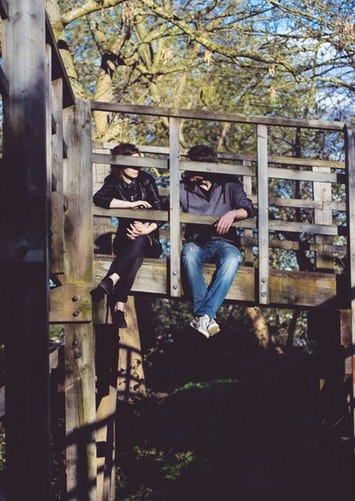
Victim Archetype: The mind reading trap is one of the ways that we victimize our self in a relationship.
You’re giving such beautiful insight. One of the things that stops people from doing this is the fear of not doing it perfectly and the fear of it coming out messy. I’m curious if you actually have an example of how you have practiced this. I remember you saying that you can be really rigid in your boundaries, and I’d love to hear a story of how that came out for you, and what that process is for you of learning how to do it right and fumble through the process.
For me, I have my way of asking for what I wanted. What used to happen for me a lot is I would feel entitled, like someone should know what I want, and how to do what I want. I would feel an entitlement about that. If they didn’t, I become a little bit passive aggressive and start making comments. At some point there’s like a blow up. I used to have a lot of blowups where it would be like, “Why don’t you know what I want? I’ve told you this before.” I’m thinking of a past relationship where I told him a few times that I really like to receive a text back. He was the kind of person that wouldn’t necessarily always text back if it wasn’t necessary, and I was like, “I really just want to know that you got it.”
Something completes in the circle of communication when I just get like “I got it” after saying something. He didn’t do it over and over again. I started not texting him back, in doing this kind of passive aggressive thing. I used to be super casual also about mentioning the things that were actually really important to me, like, “It’s cool if you text me back.” “What are we going to watch on Netflix tonight?”Without really giving it the space to be important. Eventually, it came to a point where he came over and I was kind of in a huff and he was like, “What’s wrong?” Again, more passive aggression of getting him to ask me what’s wrong by intentionally being a little bit snarky or just a little bit attitude. I was like, “I didn’t know when you were coming because you didn’t text me back,” and went into a bit of an argument.
He was like, “That’s actually really important to you.” I was like, “How did you not know that? I’ve given you so many signs that texting me back is important. Why didn’t you know?” He was like, “Thank you for telling me. What kind of text back do you want to receive?” We got into the details of it, and situation remedied. Very consistently after that, he would text me back. If he ever forgot I had more grace for it, just because I got to voice this thing and realized that it didn’t mean anything, and then also get his world that he receives it, and receives it internally, and then doesn’t always feel like it’s necessary to send a text back, has nothing to do with me or anything, just to do with being busy in a day. It was like this really valuable experience. It’s a small one, but for me it illustrates that when we bring something forth, then someone has the opportunity to really get. If we bring it forth in a way that’s like, “This is important to me,” then they have the opportunity to reorient around your emotional experience a little bit and work with that. It also simultaneously gives us the space to be like, “They’re only human.” It’s actually not always that big of a deal.
It’s really important for us to look at the story that we expect to play out. Many of us come into our relationships expecting a certain outcome because that’s what we’re familiar with. It’s like, “What has been my story?” “My main story has been this person is going to forget about me. I don’t put all the work in, this person’s going to forget about me or I’m going to become unimportant and I’m going to be abandoned.” As a result, there can be this part of me that if I don’t bring consciousness to it, that can look to make that belief system true. A big part of moving out of victim archetype is moving out of the story that has us feel all these things are going to happen to us that make me feel like a victim. How do we actually go into our relationships believing that the ultimate desire is connection? Ultimately these two people want to figure it out. “This person has their own shit across from me. This person does not have it all figured out just as I don’t. How do I come in holding the highest belief that we both desire connection?”
I want to speak to something that’s like the opposite aspect here, because it’s important to bring it in, the opposite of the victim. What happened, and what has happened with me previously, and still currently sometimes, is like noticing the victim and rather than experiencing an integration, I create a reaction to the victim. That’s where a lot of the rigidity comes in. We become like a secret victim where the victimhood is actually still in there but we’re showing up being really strong. It’s a false layer of strength on top of victimhood, and then it shows up in having difficulty being really vulnerable, which is something that I’ve personally struggled with. Collapsing vulnerability and victim hood is something that I’ve experienced that I’ve had to un-collapse a little bit.
By collapse you mean having them be interchangeable terms?
Yes. Meaning that I don’t want to be a victim, therefore I’m not that vulnerable in relationship.
It actually sounds like a lot of modern day, independent woman.
I feel like, I’m glad that you put that word to it. I feel like part of the reaction to being this damsel in distress is this super woman, like Wonder Woman. You have these reactions to the damsel in distress. While we can gain a certain power from that, it’s really important to remember that vulnerability, softness, and tenderness, and really bringing the willingness to have my heart broken. The willingness to have that broken actually doesn’t make me a victim. That’s where the most strength truly lies. It’s not in this false independent woman role, but rather the “I know who I am and I am strong. I’m so strong that I’m willing to be vulnerable and let you in so far that you could break my heart.” That’s been my journey.
There are so many places we can go. I have this desire to shift course a little bit and go into the conversation of losing our self in relationship. A lot of the work that I do with women is looking at how do we stay in connection with a partner while staying deeply connected to the path that we’re walking? What is important to us? I know for myself, the main reason that I’m in this work of intimacy is because I spent most of my early twenties distinctly losing myself in relationships that looking back I would never go there again. Like getting myself into some emotionally abusive, toxic, intense relationships where I was so sold on the idea of finding my one and only, that I became completely untethered from my own reality and just immersed myself into this other person’s world experience.
It would happen over and over again, and I just go so far away from who I was, that I finally get myself to this point where I was, “I don’t even see the shore of my soul. I don’t know how to swim back.” What wind up happening is I would have these intense breaks in relationship, and just create all this drama, because I allowed myself to get so far away from who I actually was before I realized, “This isn’t where I want to be.” This is a big part of why I’ve been practicing conscious non-monogamy, ethical non-monogamy for the past several years. Not because I feel that monogamy is not a good thing, but because I was so conditioned into a certain way of perceiving what right relationship was, that I would lose connection with myself through the process. Through allowing myself to consciously connect with multiple different intimate partners, I’m learning how to actually stay connected with my desires, without instantly merging myself with anyone partner.
For me, this practice has been so important so that I’m actually grounded in who I am as I’m learning how to stay in connection with another person. I know for myself the shame of losing myself in relationship with another person, like in my past relationships, and coming to that awareness of the places where I’ve allowed myself to abandoned myself. I’ve allowed myself to become disconnected from my values. These have definitely been some of the greatest challenges in making changes. I’m sharing this because, one, it feels relevant, and two, because I imagine that I’m not alone here in this experience, and it’s this question of how do we as women learn how to un-guard ourselves enough to truly connect with intimate partners without sacrificing who we actually are.
I feel a key of this, which is something that I have worked on. I feel like I’ve been working on this since I was a little kid, just this part that really wants to please, and there’s definitely a part of me that I have my eye on at various times, especially in relationship. For a lot of women this gets activated in romantic relationship. It’s the part of us that really wants to please so that we can stay in connection, so that we can be light, so that we can be good enough, so that we can be loved, and wants and thinks that we need to change who we are in order to please someone else. It’s always interesting to me because I’ve noticed this pattern that happened in my early twenties where I would want to please someone.
I found that I was such a chameleon in dating that I could shift to orient to exactly what I needed to be the perfect woman for whoever is in front of me. It was like I would literally shift and morph. I would go home at night sometimes and be like, “I feel really different. Not necessarily in a way of choice, but what just happened?” A little bit confused. “Did I black out? What happened? Why do I feel so different?” What I noticed would happen is after about the three month mark, I couldn’t keep up the act anymore, and I didn’t want to. I got resentful. I was like, “I don’t want to be this way, this actually isn’t how I am.”It bred resentment and it bred a loss of self and a loss of essence in a way. It’s like another one of those constant journeys. What if I just am who I am in all situations, and deal with the discomfort that that brings up in other people?
That was a big piece of it for me. It was being able to deal with the discomfort that me being who I am creates in someone else. Then realizing that for me to really go deep with someone, I need to know that they can hold who I am, and that I’m not changing myself in order to make it easier for them. I’m not changing myself so they don’t have to feel something. That’s how I want it to be going both ways in a relationship. A big piece of this for me is really diving into this part that wants to please, and then learning to like deal with the discomfort in my body that happens when I don’t please someone. When they maybe don’t like something about me, or something triggers them, and I mean that’s a big part also of coaching, right? So that’s been a journey along with that as well, that’s been super helpful. It’s like dealing with the part of ourselves that that’s maybe unpopular, provocative, different, or unique in some way, instead of collapsing into what we think someone else wants us to be.

Victim Archetype: The willingness to have that broken doesn’t make me a victim. That’s where the most strength truly lies.
What I’d love to share a little bit about is we’re talking about things that are confronting, we’re inviting the women and people to take ownership for the places that have been terrifying, challenging, overwhelming, uncomfortable. I’d love for each of us to share why we do it anyway? How has your life changed as a result of willing to take ownership for the place that you’ve been a victim? As I have created alignment in my relationships, and by alignment I mean if I’m a yes in here, I’m a yes out there. If I’m a no in here, I’m a no out there. There are not people in my intimate relationship circle who I am not in alignment with. I advocate for myself. I act from integrity. The more that I’ve done that, the more my life has become this magical representation of my greatest desires.
What I’ve found is the more that I’m willing to have these uncomfortable conversations, and be willing to speak the truth and stay connected in that place, the more that I attract these amazing experiences that bring such joy. As women, a lot of us are learning how do we create our lives from a place of pleasure? How do we create deeply meaningful lives that we don’t feel like we’re needing to force? How do we consciously create our reality? I’m curious for you, what have you noticed in your life, have you’ve leaned into these uncomfortable conversations?
For me, owning my experience, and moving through the shadows and the victimhood creates a sense of being in a fun game. That life gets to be more of a creative game and it’s fun. That’s one of my favorite parts about it. As a creator of my experience, it’s like getting to play with a Monopoly game, where it’s like life occurs, it’s like being on the outside kind of witnessing and then also getting to step in playing the two roles on the outside witnessing, and then getting to step in and play the game that the part of me that was witnessing decided it wanted to play. Getting to step in and play that, and then stepping back out and it’d be like, “Interesting, now what?” I feel like almost the breadth and the depth of experience has been able to really expand and magic happens.
You mentioned alignment. I really relate with being in alignment internally with what’s happening externally, and noticing that experiences, people, clients, everything that I want starts to be magnetized towards me because it’s coming from this creative perspective. Sometimes there are slips. It’s not perfect, and there are slips back. I was sharing with Arielle, I had a difficult month. Sometimes there are slips back into this like, “Why is this happening to me? This is hard.”I noticed that I can go back to these places, and it’s almost like the neuro pathway to moving back into being a creator is well developed and navigated frequently, such that I don’t have to stay there long. It can be, “Challenging circumstance, let’s roll with it. Let’s play with this.” How can we have fun with this as a creator instead of as a victim to what’s happening.
You said like, “I’m going back to this,” and I know we’ve had conversation around spiral philosophy in the past. The way I look at it is it’s not necessarily that we’re going back. We hit this point on the spiral, and then we go around and we hit the next rung in that similar place on the spiral. I almost feel like I touched these places that seem familiar but it’s a different version of it. That’s just something that I wanted to add in.
I love that it’s because it isn’t the same. When I feel my experience is like, “I’ve gone back to my old thing,” it never quite feels the same as it did before. I love that with the spiral dynamics. Even the doorway that I went into an old behavior through is a different doorway than what I came out of the last time. It’s almost like a different experience and it always has a different flavor when it’s a game.
Live Coaching
At this point, if anyone would like to add to the conversation for me and Jamie to speak on, I’ll invite you to go ahead and speak.
Arielle, how are you doing?
I’m good. How are you doing?
I’m really enjoying what you guys are saying. You’ve given me some good food for thought. What I’m coming up against in two of my relationships that I can’t influence is I’m in a situation where I want some household rules changed, but it’s not an option because the person owns the place. I feel very disempowered. I see her every day. I go into this spiral of I can’t influence my experience. I can’t get my needs met. I tried to talk about it, I stopped trying. I’ve had a situation with a lover where I’m experiencing the same experience. I’m feeling like if I were to say what I want, which I have been able to do in other relationships sweetly, eloquently, I know what I want, I can say what I want, but the person doesn’t want to consider my needs. I can’t influence my experience. I can’t get my needs met. I stopped trying. I tried to talk about it. They’re not interested in meeting my needs.
I’m in both of those situations. I feel like I’ve done what I can and I’m trying to take responsibility for my experience. At what point do you just go, “It’s a lost cause and I just need to hang around people who are interested in my needs.”I make myself wrong for being attached to the outcome for what I asked. I feel entitled, I feel an expectation, I’m making my desire wrong, I’m making myself into the victim, and then I persecute the other person in my head. I’m observing this behavior. I’m not interacting with those people very much, but I want to, at least the person that I live with.
It’s an interesting question and I feel myself resisting a little bit, but I’m going to say this anyway because this is what I feel. There are different frequencies that we can live in. There are different vibrational realities that we can live in. What happens is when we tolerate, let’s say we’ve been embodying the victim archetype for awhile, that’s going to be reflected in the types of relationships that we are attracting into our lives. In order to elevate our vibration, in order to elevate our frequency, it requires us to act differently, make different choices, choose different relationships than we would have when we are in the victim archetype. The question that I would ask for you to sit on and reflect in is, are these people reflecting the reality that you desire to embody, or is this an opportunity for you to make a choice around who you want to be surrounded by, and if these people are actually matching the reality that you want to live in?
With the lover, I knew if I set my boundaries five years ago, that we wouldn’t even be in each other’s lives today. I just knew it. Now that I am not doing things he wants, giving up things that I want just to be with him, we’re not seeing each other. I’m perfectly fine to have it is what it is. We love each other and we just do different things, not in each other’s life in that respect. The person that I live with is family, so all I can do is just figure out a way to not be in that situation. It’s not budging.
I want to share a little personal experience because it’s with family as well. I have an experience where my dad used to drive me a little bit crazy. I felt like whenever we would talk, I would try to help him, and he wouldn’t receive the help, and he would remain in his depressed state. It felt like this entanglement where I was actually enabling something and trying to get him to change. Then one day it hit me. First of all, we can’t change anyone ever. I was like, “Maybe a part of his journey is actually not about being happy in life. Maybe his journey is actually just to be this way that he’s been. He knows that if he wants support, I’m here.” I made a shift internally where I actually just completely stopped trying to save him. I stopped trying to change him. I stopped trying to help his mood and teach him something. We didn’t talk for a little while. I wasn’t reaching out to him anymore. I was constantly reaching out to him to try to project my ideal of happiness on him and want him to be in a better place.
What I found after having a little space of distance is that it was like my orientation was in a different place, and I was like, “How’s that going?” No coaching. I completely stopped coaching my father and just listened, appreciated, and then asked questions. When I was done with the conversation or I felt like it was dragging on my energy, I would go. I didn’t put any energy into trying to change who he was. It completely shifted my experience of him. It’s funny because our relationship is much different now. Sometimes he actually calls me and asks for support and takes it. He actually receives it because I gave him the space just to be exactly how he was. I didn’t need him to change so that I could feel okay.
I get it. It’s up to me to change. I have fully accepted that I can’t influence their behavior. It’s sad because I know what I want, it’s not unreasonable. I just have to hang around with people who don’t feel it’s a chore to honor my desires.
We have time for one more.
Hello. This is Shannon.
Hi, Shannon.
How are you all doing?
Really wonderful.
I’m wanting to add into what you all are saying about how do you sit with someone who’s not wanting to fulfill your desires and how to let go of that or work through that. One thing that I was reading recently was about manifestation and frequency, and how we attract everything that happens to us. I had a hard time swallowing that little pill because that means all of my suffering is because I have attracted it to me. The woman earlier was saying that she’s sad about the fact that this has happened and this is where things are going. I felt that when I realized all of my suffering was due to my attracting it. The book that led me to the realization later on said, “We can either see this as something very mournful. You can get very depressed about it, if you really start thinking about it or it can be completely liberating because it means that you get to choose. You are the author of your story and you get to choose exactly how you want it to be.”
That’s what I have started to do, taking responsibility for my own happiness and responsibility for my own actions and what I have attracted into my life and making different choices. It’s okay to mourn relationships. I’ve got to finalize a divorce and the realization that I attracted all the stuffs that went wrong in the relationship was hard for me. It’s been a very emotional process but as long as you continue to realize that it’s your choice, you can choose how you react, and what you’re going to do from here. That’s what I’ve enjoyed about it. Listening to this has helped me just reaffirm that. It’s your choice to surround yourself with your tribe. Everyone comes into our life for a season a reason or a lifetime.

Victim Archetype: You are the author of your story and you get to choose exactly how you want it to be.
Thank you so much, Shannon. Thank you for being willing to share what’s going on in your life and the awareness that you’re creating. I’m also wanting to name this one piece surrounding yourself with your tribe. More and more what I am becoming very clear on is that community around this work, surrounding ourselves with people who are devoted to taking ownership for how we create our reality and to reflect your power back to you is so key. I’m so happy that there are so many people on this show with us. There are so many people that value this conversation. Is there anything else you’d like to add, Jamie?
Some people are meant to come into our lives to teach us something, and then some people are meant to come into our lives to be a soul mate connection or a part of our tribe, and learning to differentiate and discern with that take the lesson without having to necessarily surround our self with that person for an extended period of time.
Thank you everyone. This is our first episode of Six Vulnerable Conversations between Two Women. We’ll be back next time and the topic will be The Dark Side of the Goddess Movement. Me and Jamie are really excited about diving into the darker elements of this spiritual work that so many women are immersing themselves in. It’s going to be rich, juicy, all of those things. Jamie, if people want to learn more about you and your work, how can they reach you?
My website is RelationshipFlowState.com. I’m an erotic desire and intimate communication experts. That’s specifically the arena that I work in. I do post a lot on my personal Facebook page. You can find me on Facebook at Facebook.com/MissJamieThompson.
For those of you who are interested in learning more about my work, I’m an intimacy coach and educator,www.ArielleBrown.com. All the information for this is on our Facebook event page, Six Conversations between Two Women, or you can go to TuffLove.Live/Six-Conversations, and we’ll make all that information available to you. We’d love to hear what your experience was of this. Let us know what you want more of and we’ll talk to you next week. Thank you so much Jamie and Arielle for such a powerful, revealing, vulnerable, true, amazing conversation about this challenging, charge-y topic of victim archetype. I really enjoyed it. I hope you did too. The next episode is about The Dark Side of the Goddess Movement. Thank you so much. Go forth. Be merry. I love you. Take care.
Resources mentioned:
- Arielle Brown
- Jamie Thompson
- MeToo Movement
- RelationshipFlowState.com
- Facebook.com/MissJamieThompson
- www.ArielleBrown.com
About Arielle Brown
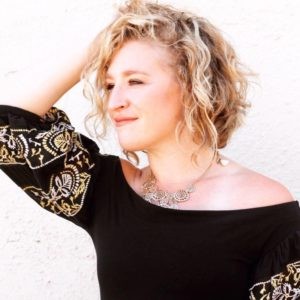 Arielle is a Relationship Expert & Intimacy Educator. She specializes in helping people to create deeper connection and intimacy their relationships and greater community. In her private coaching work with singles and couples, she helps people create or revitalize relationships that are authentic to the needs, values and desires of each person. Her group facilitation and workshops focus on cultivating deeper levels of intimacy with others through conscious communication, energetic attunement and sensory awareness of the body. Learn more at www.ariellebrown.com.
Arielle is a Relationship Expert & Intimacy Educator. She specializes in helping people to create deeper connection and intimacy their relationships and greater community. In her private coaching work with singles and couples, she helps people create or revitalize relationships that are authentic to the needs, values and desires of each person. Her group facilitation and workshops focus on cultivating deeper levels of intimacy with others through conscious communication, energetic attunement and sensory awareness of the body. Learn more at www.ariellebrown.com.
About Jamie Thompson
 Jamie Thompson is an Erotic & Intimate Communication Expert and founder of Relationship Flow State. She specializes in creating a safe space for conscious couples to have open communication while exploring a new edge of passion, depth, and erotic flow. Jamie combines study of the Quantum Field, communication techniques based in Neuroscience, and somatic movement reprogramming with 10 years of coaching experience to help clients harness their erotic intelligence. She also has an online program to help couples and individuals become fluent in the four ‘Erotic Desire Languages’. Mention this podcast to be considered for a complimentary strategy session and receive a discount code for upcoming programs. Email support@jamiethompsoncoaching.com for details. Follow Jamie on Facebook for more Exquisite Eroticism: www.facebook.com/missjamiethompson Find out your ‘Erotic Desire Language’ on Jamie’s Website: www.jamiethompsoncoaching.com
Jamie Thompson is an Erotic & Intimate Communication Expert and founder of Relationship Flow State. She specializes in creating a safe space for conscious couples to have open communication while exploring a new edge of passion, depth, and erotic flow. Jamie combines study of the Quantum Field, communication techniques based in Neuroscience, and somatic movement reprogramming with 10 years of coaching experience to help clients harness their erotic intelligence. She also has an online program to help couples and individuals become fluent in the four ‘Erotic Desire Languages’. Mention this podcast to be considered for a complimentary strategy session and receive a discount code for upcoming programs. Email support@jamiethompsoncoaching.com for details. Follow Jamie on Facebook for more Exquisite Eroticism: www.facebook.com/missjamiethompson Find out your ‘Erotic Desire Language’ on Jamie’s Website: www.jamiethompsoncoaching.com
Podcast: Play in new window | Download




